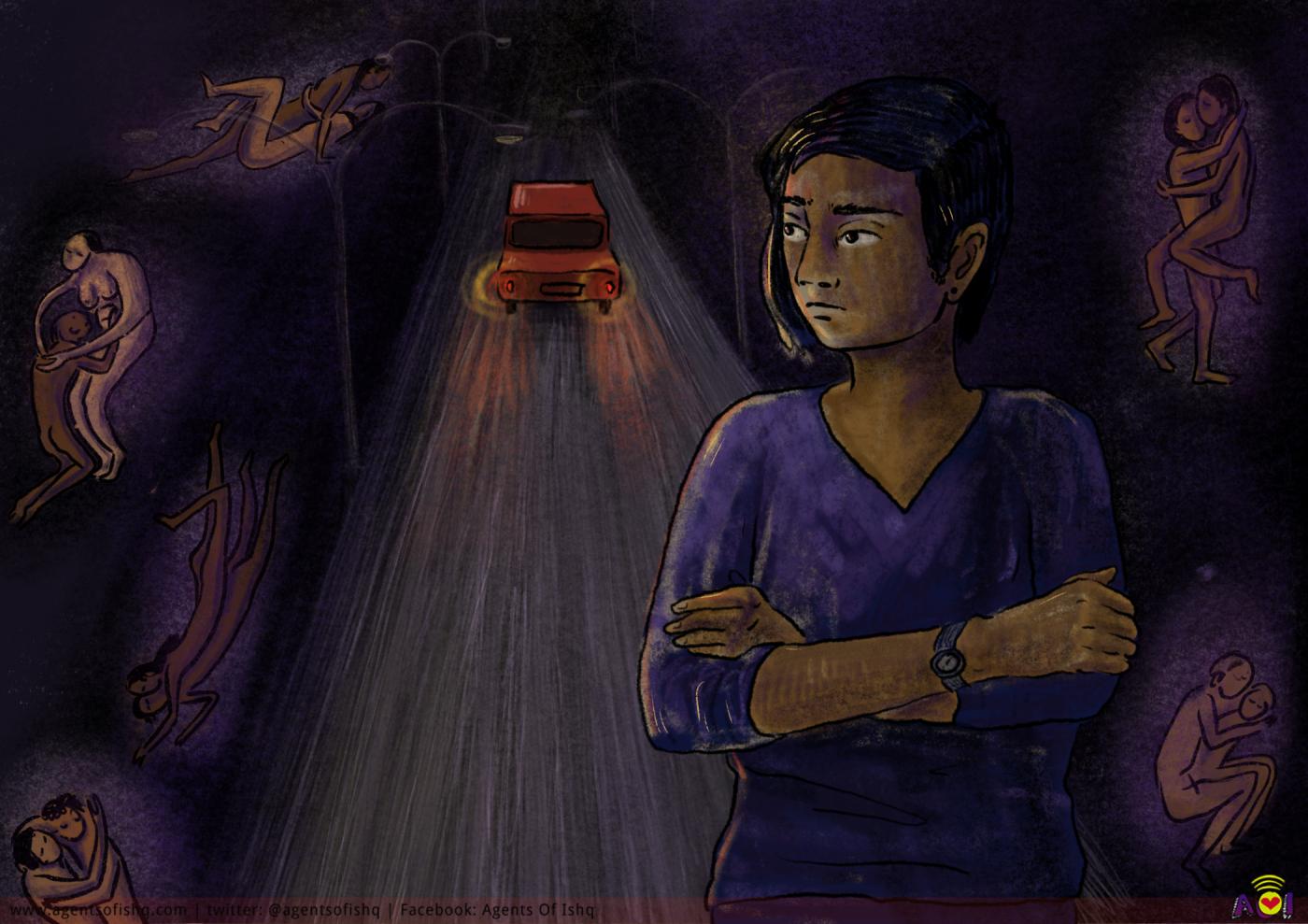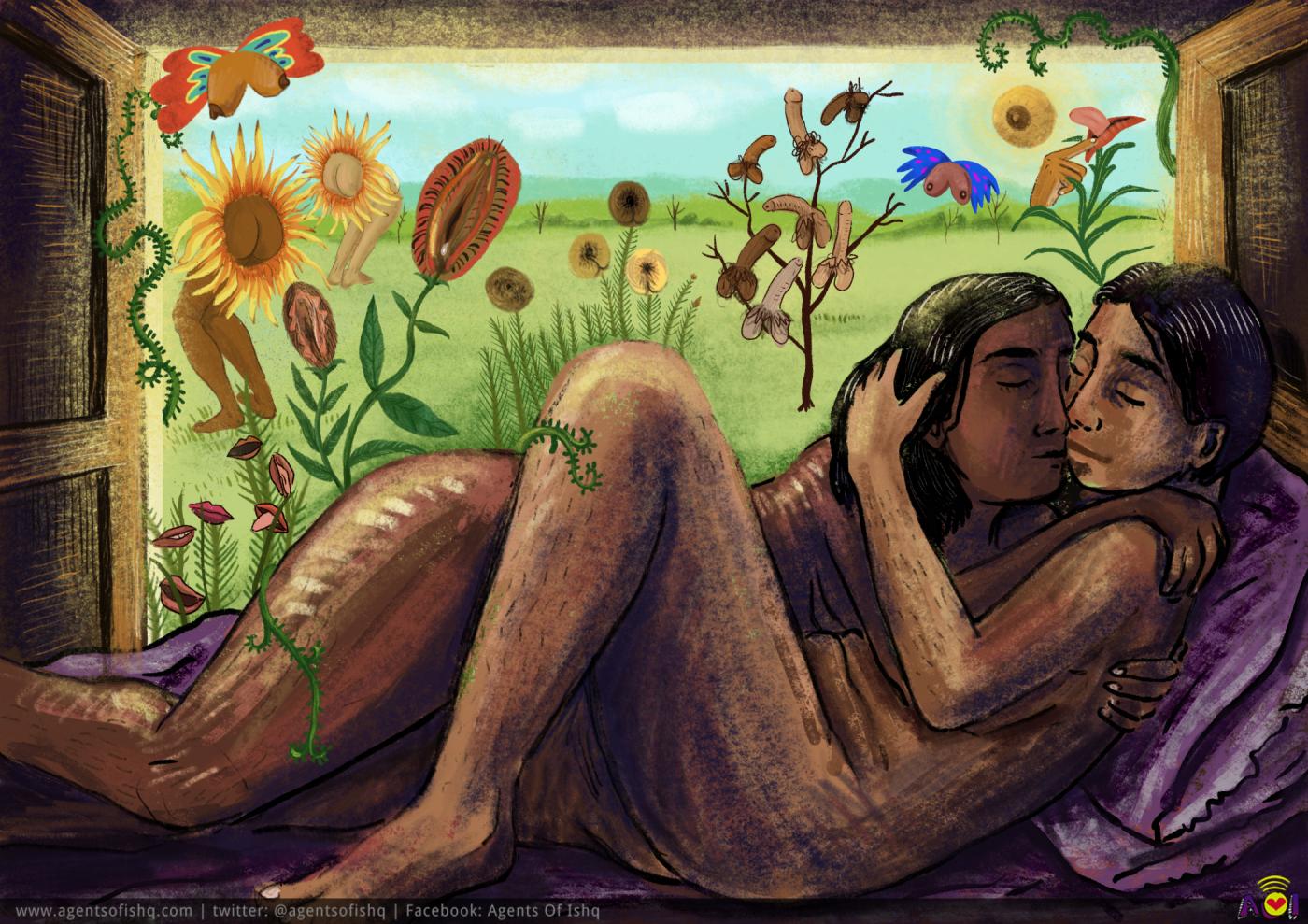The night of my rape coincided with a drunken admission of attraction. Not, of course, to my assailant — different man, very different equation. But the difference ultimately meant little.
It is only the second time I am out past midnight with a man on whom I have been harbouring a crush. The last time was a lot more pleasurable. That first time, the desire had been mutual, had led to gloriously clumsy congress. Tonight, we walk arm-in-arm, we banter, I think we flirt, I try to kiss him, I am rebuffed. “It is not right,” I am told, “We’re colleagues.” And then, “It’s time you went home.”
I’d like to think I take the dismissal with grace. I am still unreservedly happy, in the way only an illegally inebriated 21-year-old unsuspecting of the dangers of her insobriety can be.
A different colleague, seemingly the picture of chivalry, is to drop me home. The journey that ought to take half an hour takes three. Violence follows so close on the heels of failed romance that it leaves me unable to conceive of desire and sex in the same breath. Unable, also, to conceive of sex and joy together, or sex and pleasure — and least of all, pleasure through sex, this last fallout being an ongoing struggle.
This story, however, does have a happy ending (pun only reluctantly not intended), and so I shan’t delve into the darkness of the two-plus years that I sometimes call my dry years. Suffice it to say that the most distressing aftermath of sexual assault — self loathing, depression, suicidal thoughts, paranoia, emotional dissociation, self-harm, body dysmorphia, post-traumatic stress — is only an incomplete truth, filtered for comprehensibility.
Currently, my great regret in the whole matter is that there is no objective way of knowing how much sex I could have had in those years, or of what quality. There are no counterfactual scenarios to resort to, and no way, therefore, to make up the deficit now.
There is only the nostalgic splendour of the past with which to dye hopes for the future. Like that time I slept in the closest embrace I had ever known because the pizza occupied half the bed. Or the time I fell off the bed in ecstasy, an inevitable minor accident incurred in the course of drunken sex. There was the breakfast S made me, B’s magic pianist’s fingers, and the blush-inducing smut that A could elicit from me.
If it isn’t already obvious, before my brain got its wiring crossed and cut my body entirely out of the circuitry, I was a lover of sex. I delighted in the messy, intimate business of giving and receiving pleasure. A necessarily speculative exercise, perhaps, and without any real guarantee of a satisfying climax — at least for some of us — but exciting nonetheless, virtually limitless in its potential for self-expression and exploration.
All of a sudden, however, I found myself having to conceptualise anew a sexual relationship with myself. Where I once used to be libidinous, even aspirationally promiscuous, I longed now for the legitimacy of traditional monogamy to redeem shame I didn't want to admit I was carrying, to prove that I was not damaged goods, that I still held currency in the meat market. This was my inheritance from a single night. Banal misogyny worn as second skin.
Cut to a hitherto uneventful Sunday in a city of eventful weekends. I am sitting across from this ridiculously attractive person who insists on looking at me with such single-minded, leisurely attention, such unconcealed admiration, that the generosity of their gaze amazes me. I fail to hold eye contact — it’s been a while since I had the confidence to acknowledge desire. But the chemistry is maddeningly inescapable. The edge of my skin is electrified in a way that my mind has forgotten how to make sense of, but which makes my body certain of how this evening will end, without even knowing how to begin.
We fucked like a couple of feminists, all urgent tenderness and unfiltered, subversive lust.
Then, all the same old cliches. Sex changed everything and nothing. Dawn would still come too early, eager for a glimpse of the wild, shimmering world of our two bodies, catching instead only sloppy kisses: a weak resistance to its herald of departure. Goodbyes would have to be said. Hopes of encores would rise in our chests and die before they could become promises leaping off the tongue.
But, by the time the sun would rise on our decadence, I would know again, bodily, what desire felt like. I would know that pleasure resided at the nape of my neck, and joy in the massaging of my toes. Just like that, this event of a few hours would have remade me.
Or, perhaps, it wasn’t just like that. Perhaps, those hours spent exploring, on a therapist’s orders, the naked body staring back at me from the mirror had a part to play. Perhaps in tracing its curves, in taking stock of the rolls of its stomach, of those asymmetrical breasts, the darkness of its thighs, the stretch marks on its hips, perhaps in cataloguing, over and over, the blemishes that I saw, I forged a familiarity that pulled me back into my body. An intimacy that could grow into love. I suspect I owe something also to my many failed, frustrating, and eventually fun experiments with sex toys, to the rituals enacted in honour of Pleasure.
I do not credit my partner for revealing to me some sort of a second coming of sexual gratification — although I was certainly gratified, and more than once. I do, however, credit them for a visceral reminder of the expansiveness of the experience of sex, and not its performance. More importantly important, I am grateful to them for lending me that attentive, admiring, generous gaze with which I am learning to view myself.
“That’s the dream of sex, isn’t it?,” writes essayist Olivia Laing in The Lonely City: Adventures in the Art of Being Alone, “That you will be liberated from the prison of the body by the body itself, at long last desired, its strange tongue understood.” To me, this liberation looked a lot like healing. I do not yet aspire to promiscuity, and although I am shedding that second skin, I cannot yet claim to love the shape of the scars it reveals. But I am glad for what they represent — the closing of wounds. And, I am learning to respect the inflections they have bequeathed upon my body.
Suvanshkriti studies political science and cultural studies. She is interested in the intersection of literature and politics, especially questions of identity, multiculturalism, and liberal rights.


































































































































































































































































































































































































































































































































































































































































































































































































































































































































































































































































































































































































































